From Generative AI to ReGenerative AI: How can enterprises balance innovation and sustainability?
The generative AI craze is sweeping the world and will become the core driving force for corporate transformation and innovation in 2025. On January 22, Taiwan AI Labs held the 2025 Taiwan AI TechDay, attracting more than 300 experts and leaders from various industries to gather together to discuss the latest developments and applications of AI technology. The event was kicked off by Ethan Tu, founder of Taiwan AI Labs, who delivered a brilliant opening speech, providing participants with insightful analysis of industry trends and forward-looking thinking.
In the rapidly evolving generative AI game, we have witnessed the explosion of generative AI applications in various industries in 2023, and the beginning of countries paying attention to AI regulation in 2024. The European Union took the lead in passing the AI Regulation Law (EU AI Act). Continuing its leadership in GDPR, the United States followed closely and issued the AI Bill of Rights, emphasizing transparency and responsibility in the development of artificial intelligence. As 2025 approaches, the core issue of global concern will focus on how to make high-energy-consuming generative AI comply with ESG sustainable development goals and move towards “ReGenerative AI”.
This is exactly the core concept that Taiwan AI Labs has been adhering to since its establishment – to provide sustainable, trustworthy, and responsible AI solutions. This not only aligns with the trend of international regulatory compliance but is also a key opportunity and challenge for Taiwan to leverage its soft power and move towards the global stage.
ReGenerative AI: The core value of sustainable AI
ReGenerative AI is a combination of Generative AI and ESG (Environment, Society, and Corporate Governance). While paying attention to the impact of AI on the environment and society, ReGenerative AI continues to promote the development of generative AI technology and ensure that it can create value for enterprises and society in the long run.
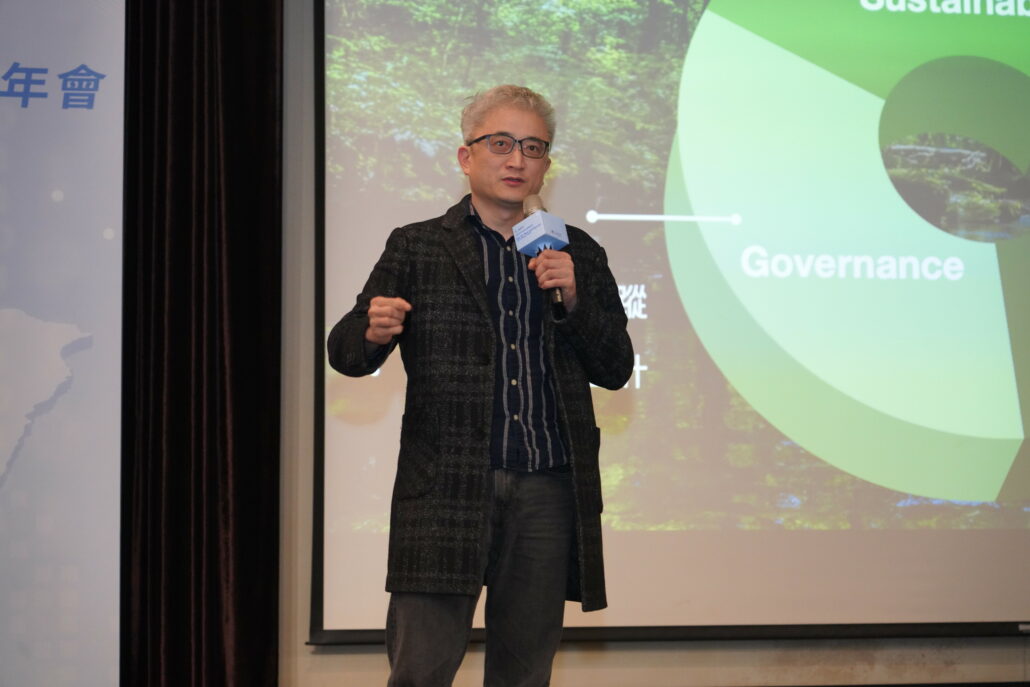
ReGenerative AI covers three core aspects:
- Sustainability: Improving energy efficiency and creating green AI
- The AI training and reasoning process is extremely energy-intensive, and how to reduce the carbon footprint becomes a key issue.
- Taiwan AI Labs uses state-of-the-art algorithm technology to optimize the AI model (LLM) to make it “small yet specialized”, allowing enterprises to deploy AI locally without uploading to the cloud or large data centers, significantly reducing energy consumption and improving computing efficiency.
- Governance: Comply with AI regulations to ensure compliant applications
- AI content generation needs to be explainable, traceable, verifiable, and auditable to ensure compliance with global AI regulatory standards.
- Ensure that the AI development process complies with international regulatory laws and regulations such as the EU AI Act and the US AI Bill of Rights, and promote transparency and responsible application of AI.
- Reliability: Building specialized AI to ensure model credibility
- AI models must not only specialize in specific industries and applications, but also have the ability to proactively identify problems and self-correct errors to improve stability and reliability and avoid AI “talking nonsense in a serious manner.”
- Through Domain Expert Models, AI is ensured to have high levels of professionalism and accuracy when applied within enterprises.
According to IDC research, when enterprises adopt generative AI (GenAI), the core issues they are most concerned about include data security, data governance, and data privacy. Ensuring the protection of user personal information, maintenance of data privacy, and copyright compliance of data owners has become an important issue in AI governance. In addition, companies must guard against risks such as AI platforms misappropriating uploaded data without authorization or AI training processes involving infringement, and ensure that AI applications comply with international regulatory laws and regulations, such as the EU AI Act and the AI Bill of Rights, to reduce compliance risks at the regulatory and ethical levels.
How can enterprises balance AI deployment, sustainable development and business value?
In the process of AI application and implementation, the challenge faced by enterprises is: How to ensure that AI applications comply with ESG sustainable development goals while reducing costs? Training general AI models requires a lot of computing power, electricity, and financial resources, with costs easily reaching hundreds of millions of dollars. In addition, energy-intensive AI computing is not conducive to sustainable development. Therefore, enterprises should adopt a more cost-effective and application-valued strategy and choose “Domain Expert Models” that specialize in the field of the enterprise and can solve specific tasks, that is, GPT with the highest ROI, to improve productivity, Reduce operating costs while practicing the concept of green AI to achieve a win-win situation of sustainable development and profit realization.
The Current Applications and Future Development of Generative AI
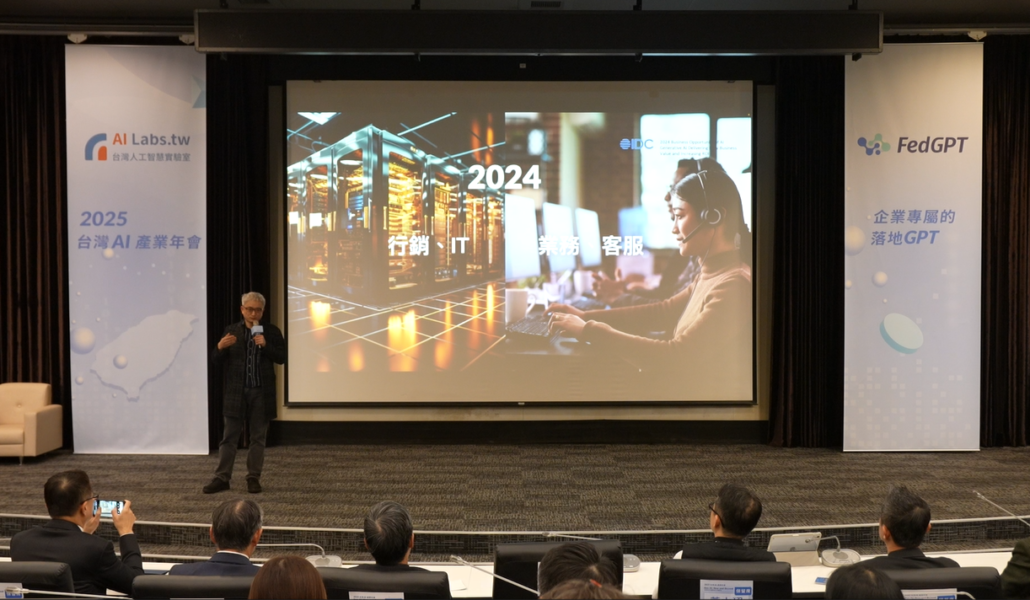
Generative AI has a wide range of application scenarios. According to IDC’s survey, the four major departments that global companies prioritize adopting GenAI in 2024 are:
- Marketing
- Automatically generate marketing copy, advertising content, and social media posts to improve creativity and marketing efficiency.
- Analyze consumer behavior through AI, provide personalized marketing strategies, and improve conversion rates.
- IT (Information Technology)
- AI assists in code generation, automated testing, and document writing to improve development efficiency.
- Quickly troubleshoot system errors, optimize IT operation processes, and accelerate product launch time.
- Sales
- AI analyzes customer data, predicts sales trends, and provides personalized sales recommendations.
- Provide AI-assisted business training to strengthen sales team performance.
- Customer Service
- Deploy intelligent customer service and chatbots to respond to customer needs instantly 24 hours a day and improve customer satisfaction.
- AI automatically handles common problems, reduces labor costs, and improves service quality.
Enterprise Departments Adopting GenAI in 2025
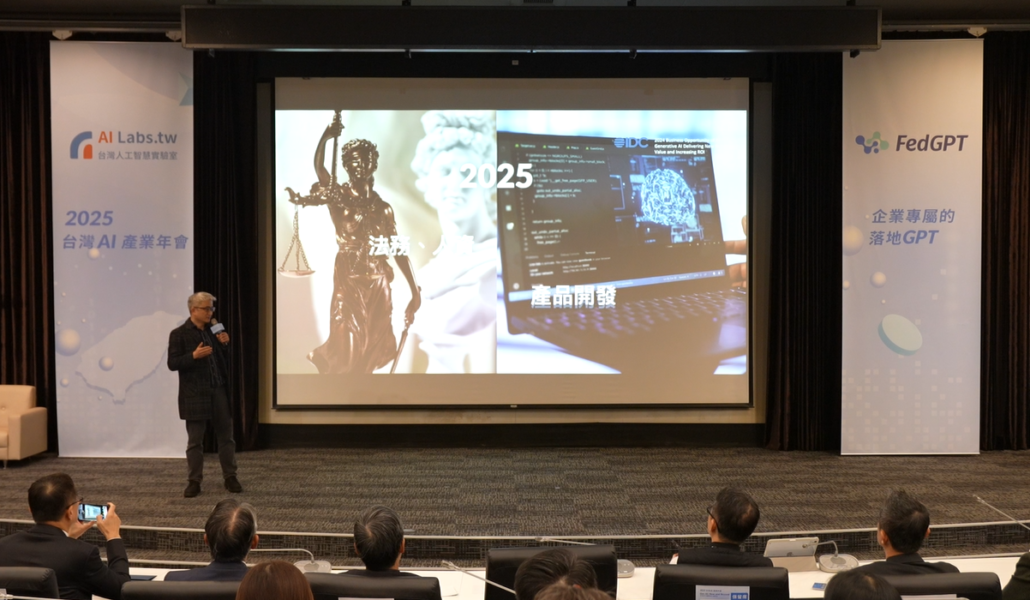
Looking ahead to 2025, the application areas of generative AI (GenAI) will continue to expand, with legal affairs, human resources and product development being the three priority departments:
- Product Development
- AI assists in product design, prototyping, testing and optimization, shortens product development cycles and increases the speed of innovation.
- Analyze market demands and trends through AI to help companies develop more competitive products.
- Human Resources (HR)
- AI assists in talent recruitment, resume screening, employee training and performance management, improving the efficiency of human resources management.
- AI analyzes employee needs and workplace trends, optimizes talent management strategies, and improves employee satisfaction.
- Legal
- AI assists in contract review, legal document writing and legal research, improving the efficiency and accuracy of legal work.
- AI automates risk assessment and regulatory compliance analysis to reduce corporate legal risks and ensure that business operations comply with regulatory standards.
Three Core Driving Forces for Taiwanese Companies to Adopt GenAI
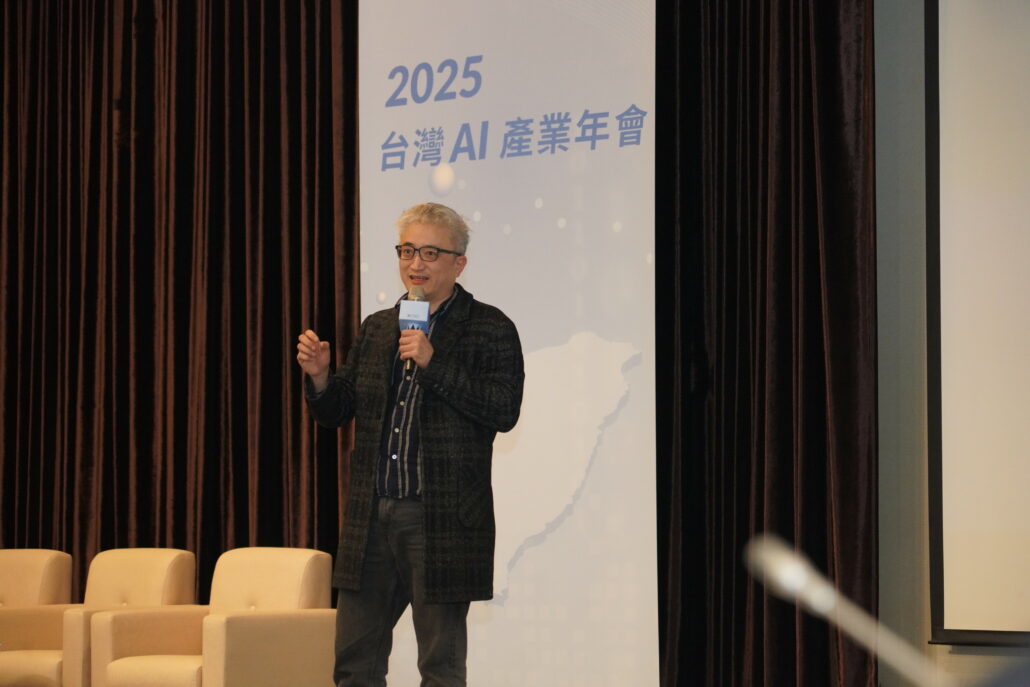
The main factors that prompted Taiwanese companies to actively introduce generative AI can be summarized as improving productivity, optimizing operational processes, and increasing revenue and profits:
- Improve productivity:
- AI automates the processing of large amounts of data, performs repetitive tasks, and reduces the burden on human labor.
- AI generates reports and decision-making recommendations, shortens the decision-making process, and improves organizational operational efficiency.
- Optimize operational processes:
- AI-assisted operation process automation reduces manual processing time and reduces error rates.
- Through AI, production/inventory predictive analysis, supply chain optimization and risk assessment can be performed to improve the stability of corporate operations.
- Increase revenue and profit:
- AI analyzes customer data and consumer behavior, provides personalized sales recommendations, and improves conversion rates.
- AI monitors market trends and competitive dynamics, helping companies develop more precise marketing and market strategies.
- AI can gain insights into market demand, optimize product development direction, and ensure continuous innovation and improved profitability for enterprises.
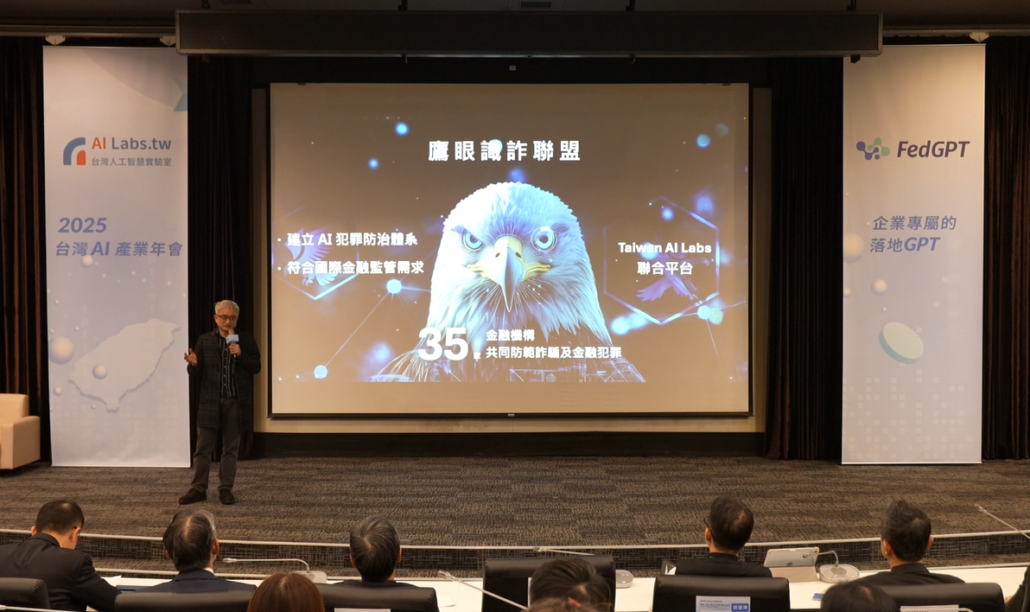
Taiwan AI Labs has taken the lead in establishing the world’s first national federal data governance-joint platform, and since 2024, it has assisted the Eagle Eye alliance composed of 35 domestic financial institutions to jointly prevent financial fraud and combat financial crimes. Through this platform, the confidential information of each bank does not need to be leaked, nor does it need to use any external API. It can still enhance the ability to identify fraud patterns, meet international financial regulatory requirements, and share the results of training models to create a comprehensive AI Crime prevention system.
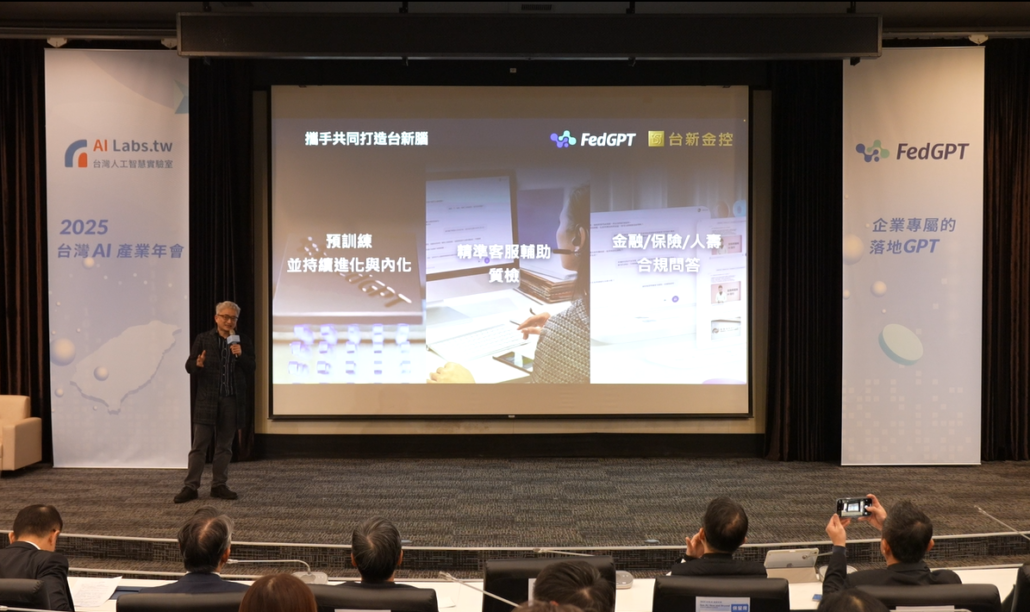
In 2024, Taiwan AI Labs and Taishin Financial Holding Co., Ltd. jointly develop “Taishin Brain.” Through pre-trained FedGPT using financial and internal knowledge, the model is inherently equipped with a deep understanding of Taishin and can continuously evolve and internalize over time. This initiative will help subsidiaries in finance, insurance, and life insurance achieve compliant Q&A, thereby providing smarter and more accurate customer service.
Taishin International Bank Co., Ltd. stated that the launch of “Taishin Brain” is a major breakthrough in Taiwan’s FinTech field. This not only enhances Taishin Bank’s service quality but also brings a better experience to customers. Through cooperation with Taiwan AI Labs, Taishin Bank will continue to train this AI brain, exclusive to Taishin employees and customers, and will provide intelligent and convenient solutions in more fields in the future.
FedGPT:Your Dedicated Enterprise GPT
FedGPT carries a Traditional Chinese industry expert large language model built by Taiwan AI Labs using exclusive model optimization technology and trained on a corpus of over 100 billion Traditional Chinese characters. It adheres to the international regulatory principles of trustworthy and responsible AI governance, and is specifically designed for enterprises to create their own localized multi-modal GPT. It can seamlessly integrate various technologies, including:
- Automatic Speech Recognition (ASR) – Automatically transcribes speech to text, improving the efficiency of processing voice data.
- Text-to-Speech (TTS) – Generates natural-sounding speech for applications such as customer service and automated broadcasting.
- Federated Learning Platform – Maintains data privacy while enabling cross-enterprise AI sharing and collaboration.
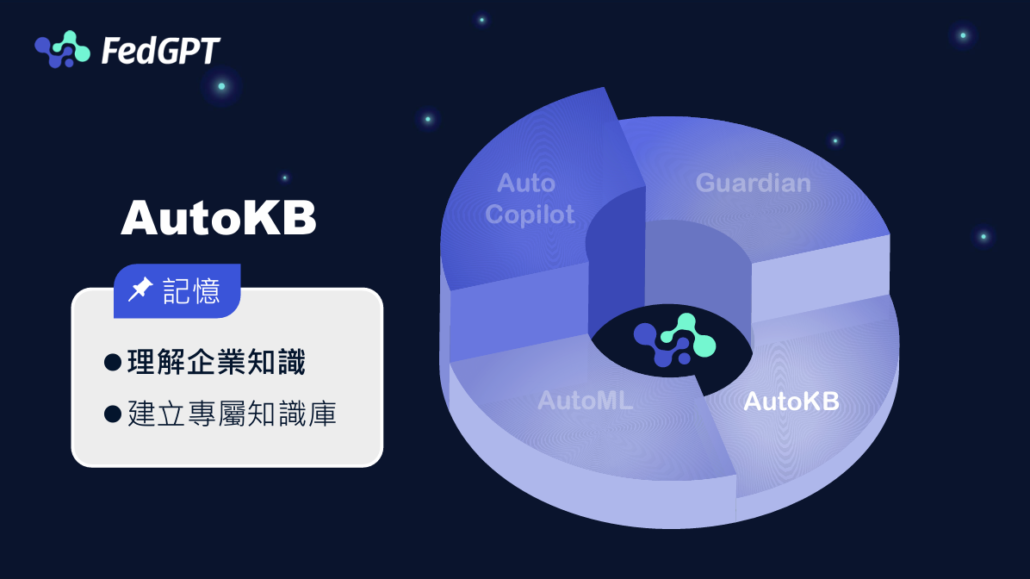
FedGPT not only possesses a massive corpus of Traditional Chinese and English, but also utilizes pre-training technology, enabling the model to have specialized knowledge of specific industries when it goes online, achieving rapid deployment of enterprise AI. This technological advantage will significantly reduce the learning cost of enterprise AI applications, and ensure the accuracy and industry applicability of AI-generated content, helping enterprises seize the opportunity in the AI-driven era and enhance competitiveness.
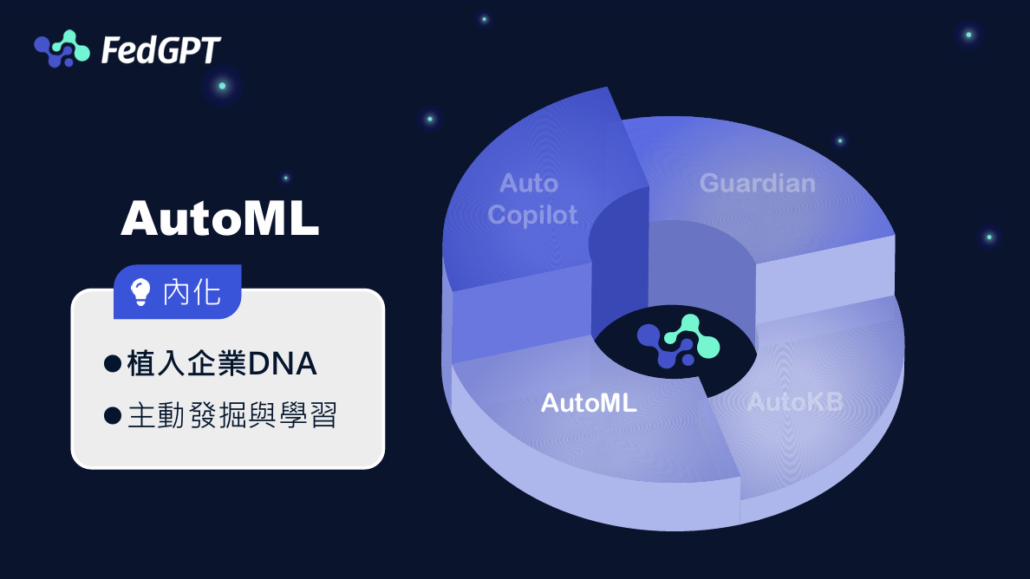
Pre-training the model based on industry categories allows AI to be inherently equipped with industry-specific knowledge and to learn from internal corporate knowledge bases at any time, deeply embedding corporate DNA and continuously strengthening the model’s capabilities. Particularly in scenarios such as decision support, customer service, and data analysis that require accurate and specialized knowledge, it can demonstrate greater effectiveness.
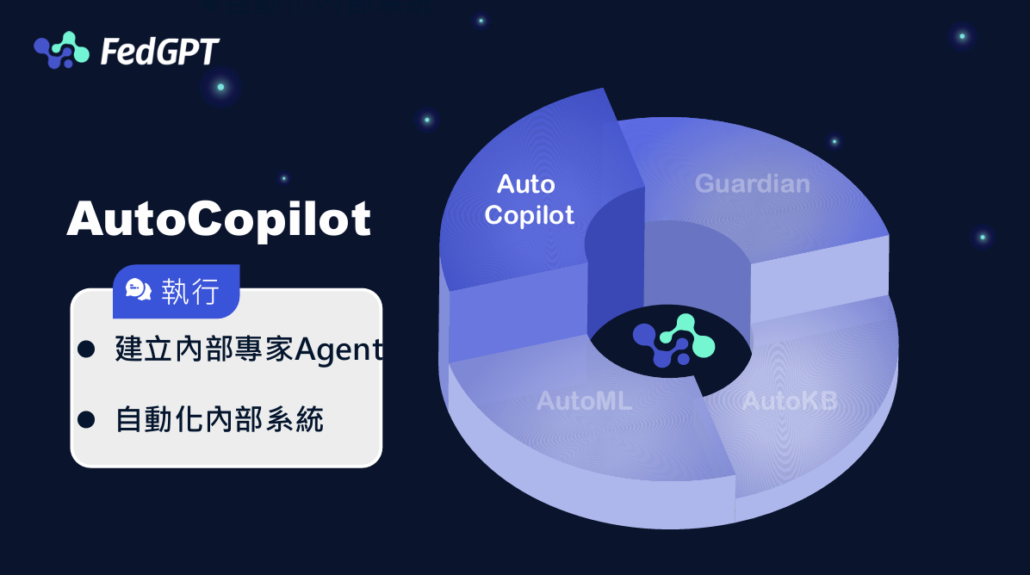
For complex tasks within an enterprise that involve fixed and repetitive processes or require connecting multiple internal systems, internal expert Agents can be linked through APIs to execute specific tasks, and even automate internal systems. In the future, employees will only need to use natural language commands or customized schedules to activate agents to perform tasks, greatly improving efficiency and allowing them to focus their energy on more valuable business activities.
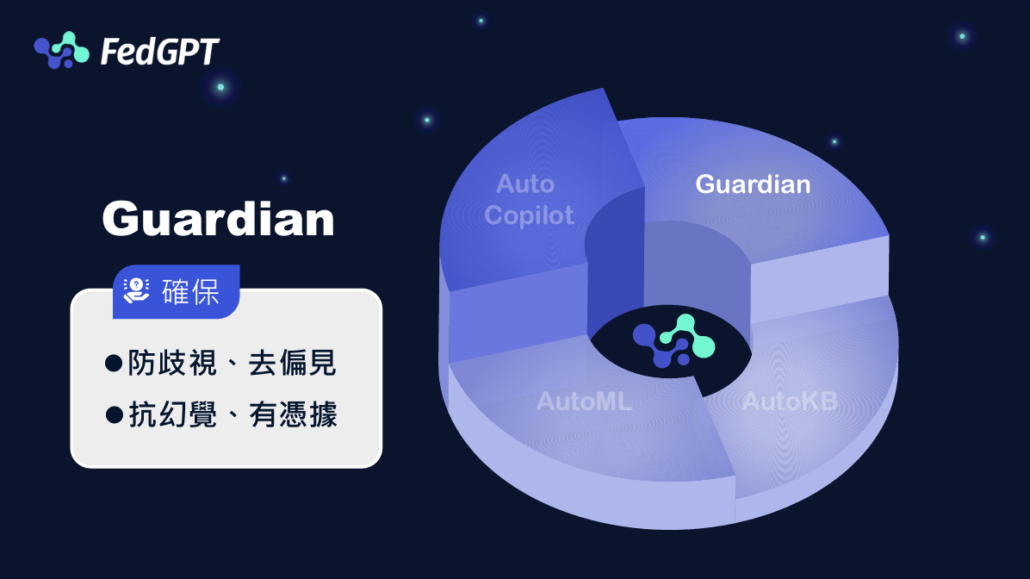
FedGPT continuously strengthens the foundational model, dynamically monitors generated content, ensures compliance with AI governance regulations, possesses clear knowledge sources, and provides reliable answers based on enterprise-specific information, avoiding AI hallucinations caused by training data limitations, creating a trustworthy AI application environment.
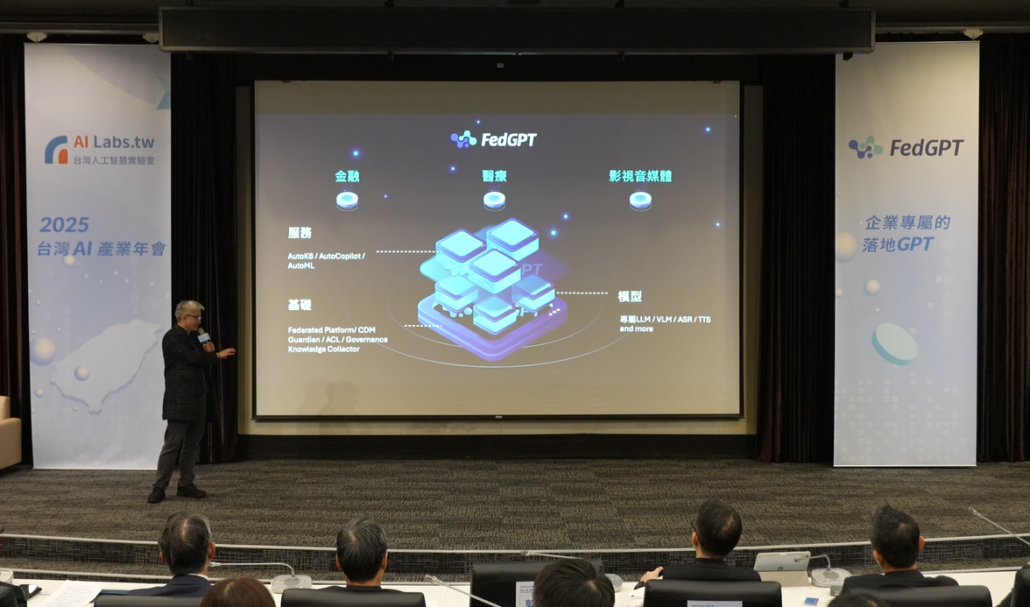
FedGPT is the world’s first federated GPT built with Traditional Chinese, specifically designed for practical industry applications. Based on technologies such as federated learning (Federated Platform), current events tracking (Knowledge Collector), CDM, ACL, and AI governance, it establishes large language models (LLM) and multi-modal models (VLM). It also connects specific application models like Automatic Speech Recognition (ASR) and Text-to-Speech (TTS), providing three core services: AutoKB, AutoML, and AutoCopilot. These are widely applied in industries such as finance, audio-visual media, and healthcare, creating customized enterprise GPT solutions.
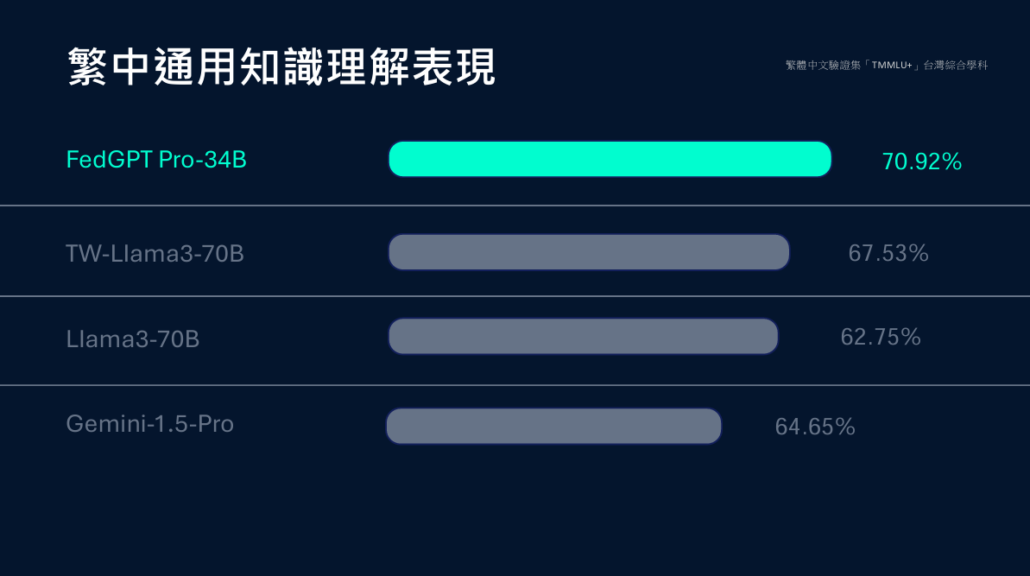
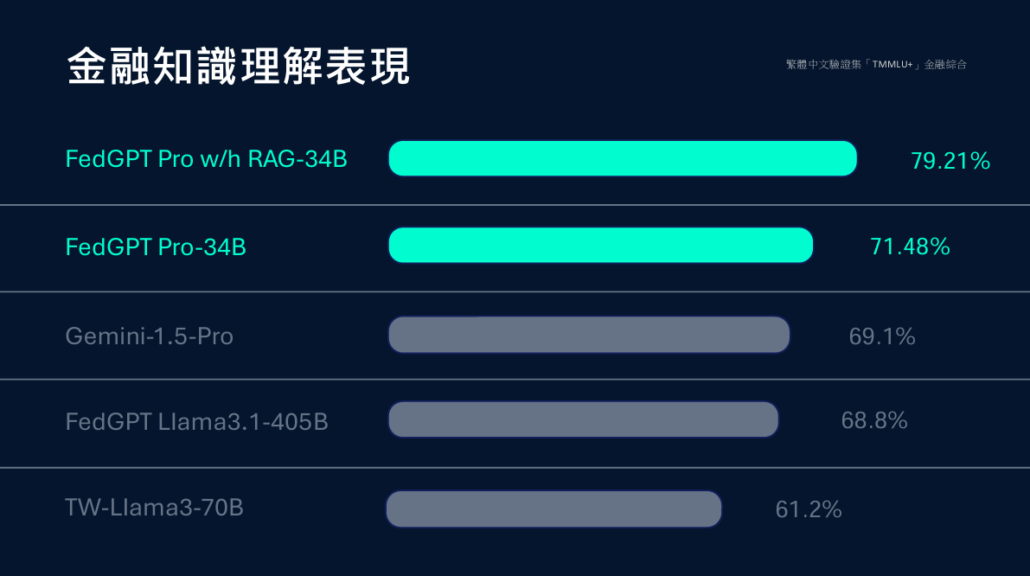
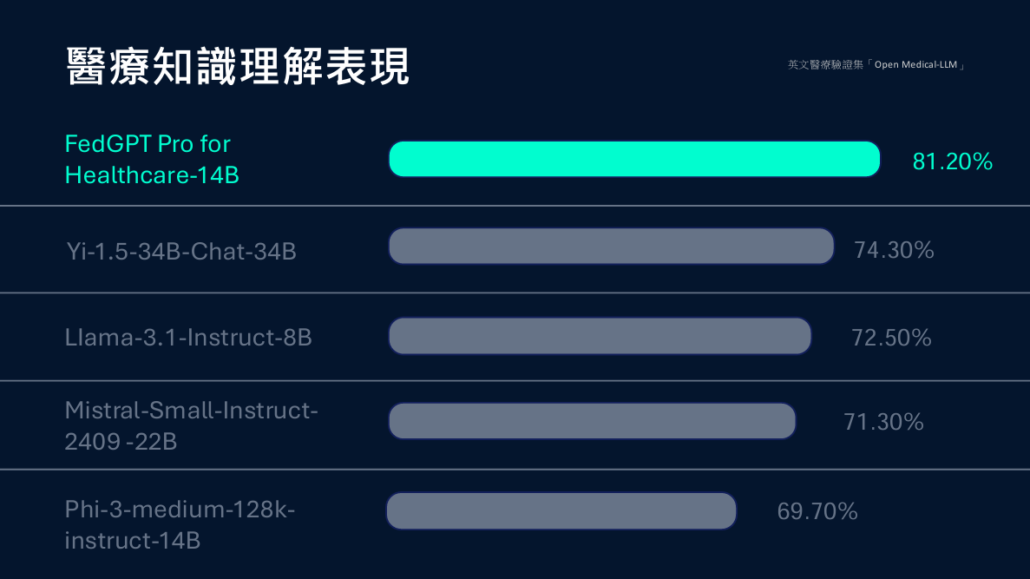
FedGPT’s language model is forged through Taiwan AI Labs’ exceptional model optimization technology, with training materials covering nearly 100 billion Traditional Chinese tokens, 15 billion medical materials, 1 billion financial tokens, and regulatory data. It demonstrates outstanding performance in finance, healthcare, and Traditional Chinese knowledge understanding, achieving significant results with limited resources, surpassing many well-known general-purpose large models, and providing more accurate and efficient AI solutions for industries.
FedGPT Live Demo
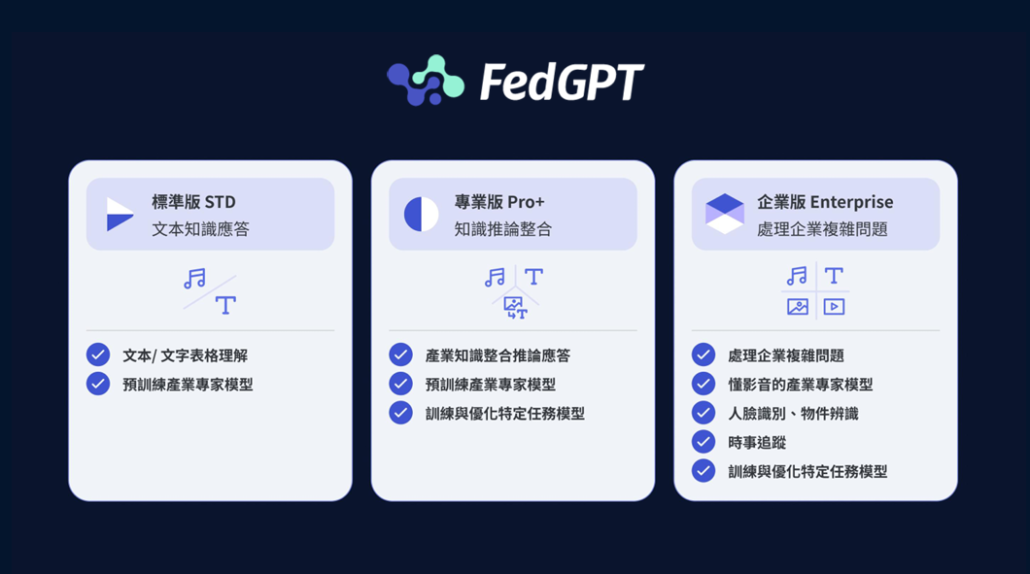
Taiwan AI Labs has launched the “Center of Excellence Program,” promoting AI applications and talent cultivation in universities across Taiwan through cutting-edge technology and resource integration. We first invited six leading scholars to participate, including Li Hong-yi and Chen Yun-nung from National Taiwan University, Hsu Chia-yu and Li Min-fan from National Taiwan University of Science and Technology, Tsai Jui-huang from National Chengchi University, and Yang Chao-tung from Tunghai University.
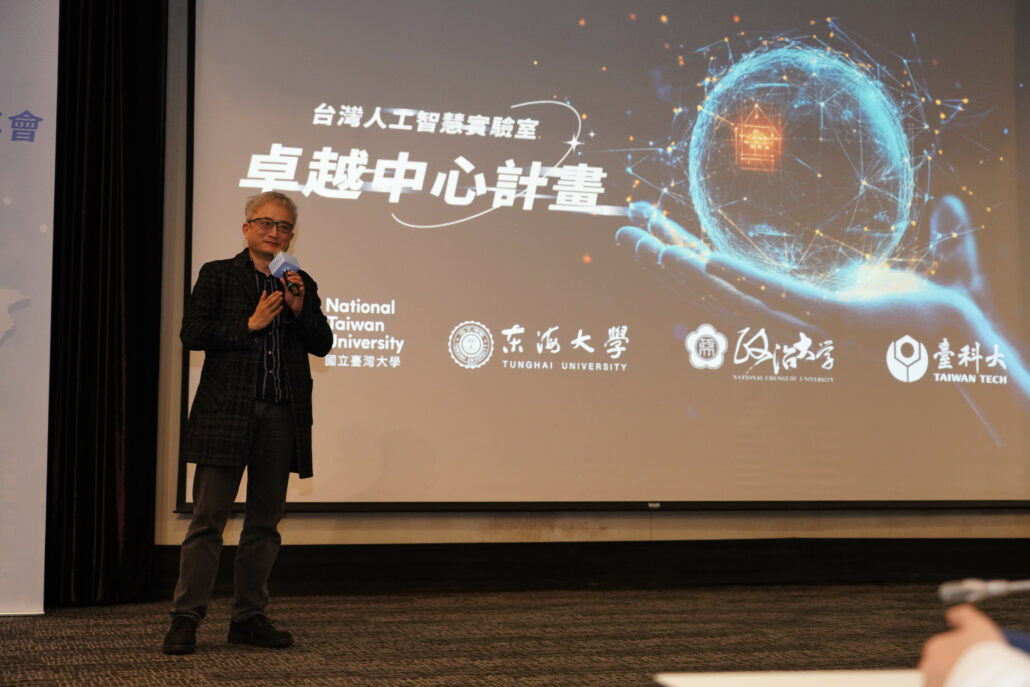
Program Focus:
- Strengthening Academic Application and Research Competitiveness: Promoting the application of FedGPT in academia, improving research efficiency, supporting literature summarization, data analysis, etc., and enhancing international competitiveness.
- Establishing AI Research Ethics and Protecting Data Privacy: Working with the academic community to formulate AI research ethics guidelines, ensuring data privacy and copyright, and creating a trustworthy AI application environment.
- Cultivating International-Level Talent and Strengthening Taiwan’s AI Soft Power: Providing a secure platform and technical support, enhancing the AI capabilities of teachers and graduate students, attracting overseas talent, and promoting Taiwan’s AI to the world stage.
About FedGPT
FedGPT (https://fedgpt.cc) is a Traditional Chinese industry expert model built by Taiwan AI Labs using exclusive model optimization technology and trained on a corpus of over 100 billion Traditional Chinese characters. It adheres to the international regulatory principles of trustworthy and responsible AI governance, and is specifically designed for enterprises to create their own localized multi-modal GPT. It can seamlessly integrate Automatic Speech Recognition (ASR), Text-to-Speech (TTS), and a Federated Platform, providing four major functions: AutoKB, AutoML, AutoCopilot, and Guardian, to various industries such as finance, audio-visual media, and healthcare, empowering employees to create value for the enterprise.”
About Taiwan AI Labs
Taiwan AI Labs (https://ailabs.tw) pioneers trustworthy AI solutions, integrating generative AI across healthcare, federated learning, virtual avatars, and other applications. The lab’s research spans AI music, speech recognition, and media analysis, earning recognition in leading international journals. By uniting talent, resources, and industries, Taiwan AI Labs drives AI innovation from Taiwan to the world.



